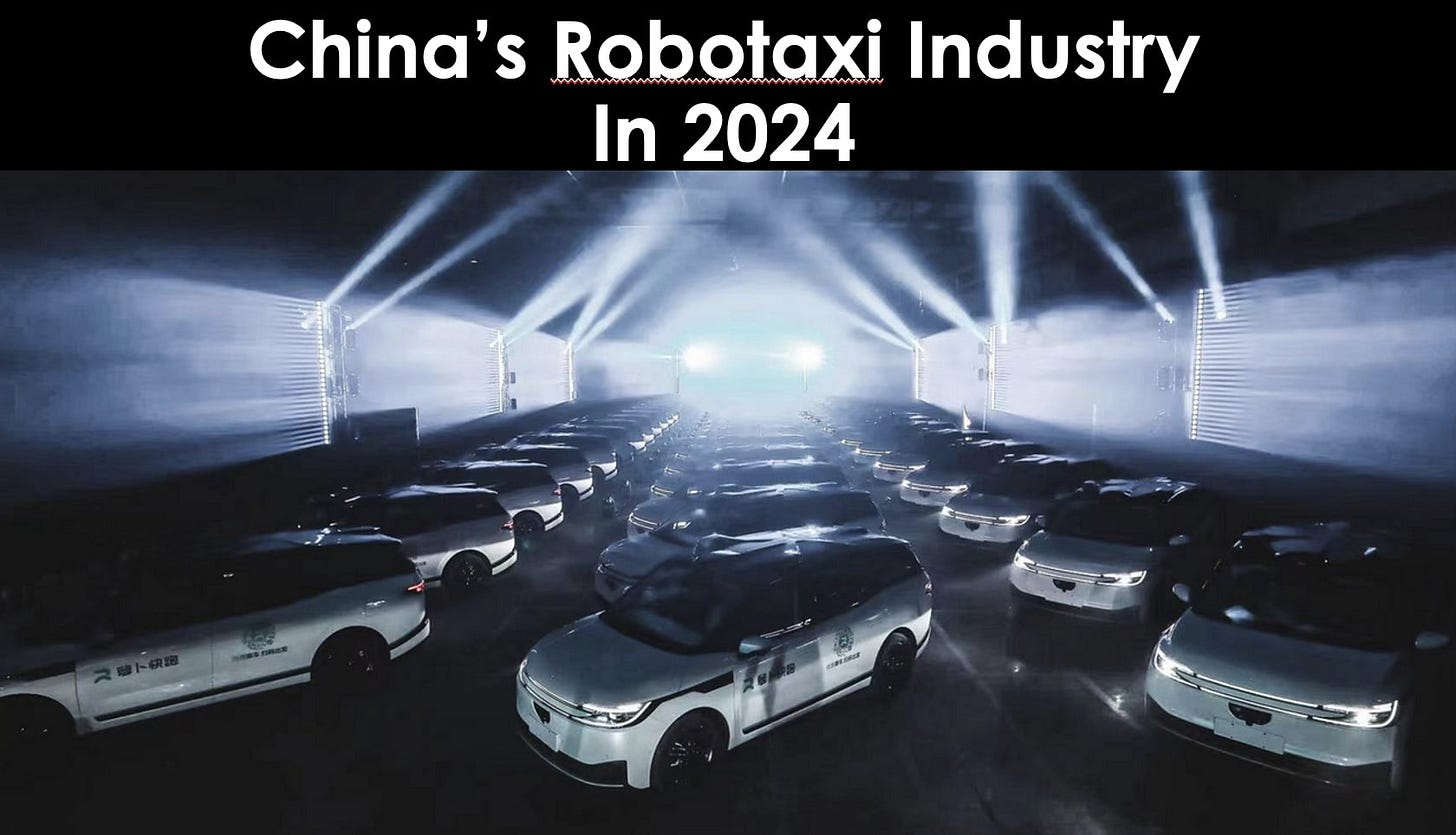China wants to be a global leader in emerging technologies and has identified robotaxi's and autonomous driving as a key target.
The top robotaxi and autonomous vehicle companies in China are:
AutoX
Baidu Apollo
Didi Chuxing
Pony.ai
WeRide.
Baidu Apollo seems to be a world leader with more rides given and miles driven than Waymo (Google backed US leader in robotaxi).
Apollo, AutoX, Pony.ai, Didi and WeRide each have hundreds of robotaxi vehicles and operate in 10 to 25 cities in 2024 and could be up to 65 cities in 2025. Apollo, Didi, AutoX and Pony.ai could have thousands of robotaxi in 2025. Apollo is targeting to become profitable in 2025.
Dozens of cities have been granted licenses for pilot zones for some forms of autonomous vehicle. In December 2023, China’s first national regulations on commercial operation of autonomous vehicles went into effect. Roboshuttles or robotrucks still need to have in-car safety operators, while robotaxis can use remote operators. The ratio of robotaxis to remote operators cannot exceed 3:1, and operators need to pass certain skill tests. There are also rules specifying what data the companies need to report when accidents happen.
Robin Li, co-founder and CEO of Baidu, said Baidu Apollo Go aims to expand services on its autonomous ride-hailing platform Apollo Go to 65 cities in 2025, and to 100 cities in 2030. They plan to deploy tens of thousands of autonomous vehicles across China. They are moving toward a future where taking a robotaxi will be half the cost of taking a cab today.
By April, 2024, Baidu Apollo had accumulated over 100 million kilometers (60 million miles) of autonomous driving distance without major accidents. The sixth-generation Apollo Go self-driving vehicle, costing 60% less than its predecessor, will see its first batch deployed in Wuhan immediately, with a fleet of 1,000 units expected by the end of 2024.
Apollo benefits from access to Baidu’s vast stores of search queries, images, video, and positioning data, which provide crucial training for its AI to confront myriad situations on the road. Baidu also produces various hardware parts for its AVs, including devices to collect and process data crucial to autonomous driving. In March of 2022, Apollo announced it had hit 25 million kilometers (15.5 million miles) of test driving, and it blew the competition out of the water in rankings for most test driving done in Beijing from 2018 to 2020.
Apollo Go currently covers more than 10 cities in China, including Beijing, Shanghai, and Guangzhou and Shenzhen in Guangdong.
BloombergNEF's 2022 Electric Vehicle Outlook said China will operate the world's largest robotaxi fleet with some 12 million autonomous vehicles by 2040, followed by the US, with about 7 million such vehicles.
Other Chinese tech companies, such as Pony.ai, WeRide and Didi Autonomous Driving, the self-driving technology arm of Didi Global, are stepping up efforts to launch self-driving taxi services.
Keep reading with a 7-day free trial
Subscribe to next BIG future to keep reading this post and get 7 days of free access to the full post archives.




